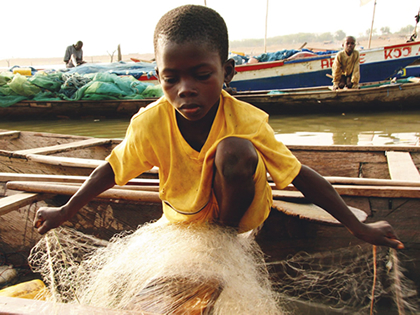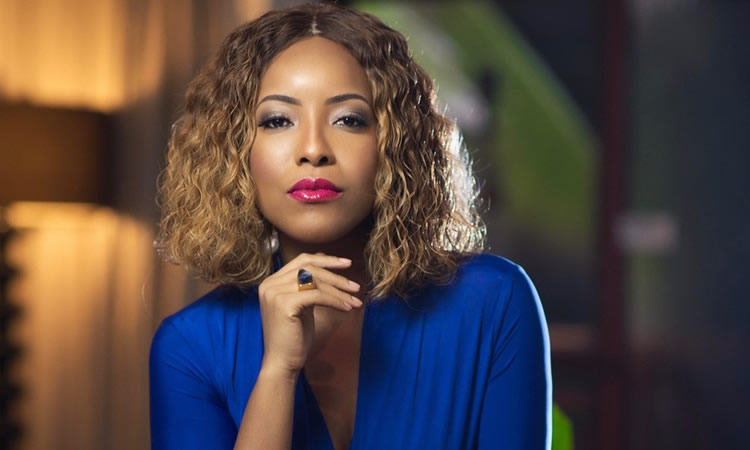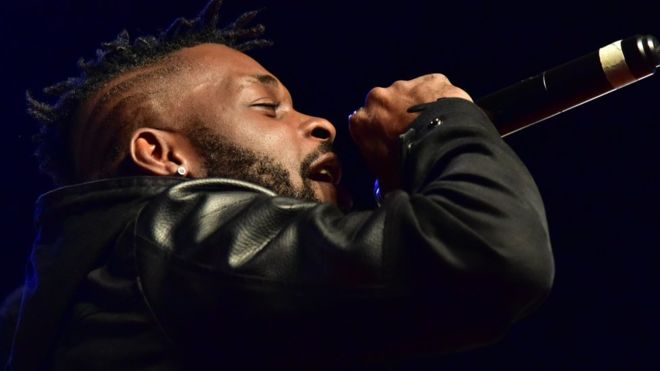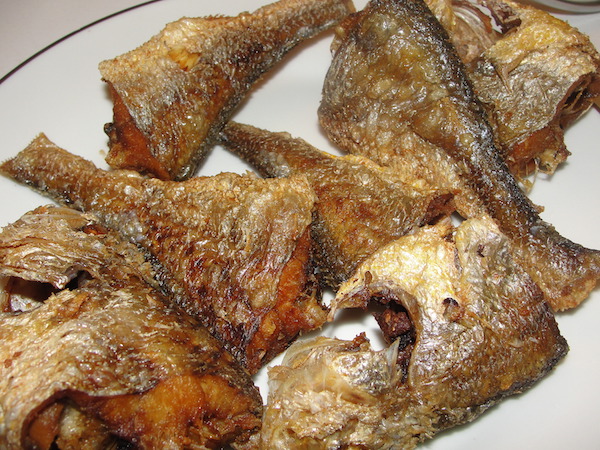Slavery On The Volta Lake – A Silent Nightmare Of The Ghanaian Child
- Home
- Slavery On The Volta Lake – A Silent Nightmare Of The Ghanaian Child

Slavery On The Volta Lake – A Silent Nightmare Of The Ghanaian Child
 Trafficking of humans is an international problem affecting millions of people and many countries around the world.
Trafficking of humans is an international problem affecting millions of people and many countries around the world.
Internal trafficking of children in Ghana is one of the biggest developmental challenges successive governments and development partners have been struggling to overcome.
Some children are trafficked from their home villages to work in the fishing industry for long hours and the irony of it all is that they are denied basic education and lived in miserable conditions to the detriment of their health and well-being.
Trafficked children, in their bid to feed and make life comfortable for themselves and their families, are always exploited by fishermen along the banks of the Volta Lake.
Scenario
Fishing was his hobby when Koomson (not his real name) was staying with his uncle at Jatapko, a fishing community along the Volta Lake in the Pru East District of the Bono East Region in the 1990s.
He was then nine years old when he accompanied his uncle, a basic school teacher, transferred from Accra to stay in and serve the Jatakpo Community, a predominantly fishing community.
His uncle knew leaving Accra to stay with him at Jatakpo would definitely affect his education and ruin his future, but nothing could stop Koomson who had then lost both parents in a fatal accident from following his uncle to the village.
Koomson’s new life at the Jatakpo Community seemed interesting when he sought permission from his uncle, who always allowed him to join some young ones in the village to go fishing along the shores of the Volta Lake.
Within a few weeks of stay, he had learnt a lot and gotten himself abreast of the techniques involved in catching fish; hand gathering, spearing, netting, angling and trapping.
As he grew in strength and stature, Koomson never knew he was the ‘eye’ of a group of fishermen who had planned to traffic him to a far-reaching fishing community for exploitative work.
With the help of his trusted uncle, who had already negotiated with the traffickers for a fee, they succeeded in trafficking Koomson to Atrapa, a commercial fishing community along the Volta Lake and that was where his ordeal began.
Ordeal
Narrating his ordeal to the Ghana News Agency (GNA) Koomson, 31, and a renowned fisherman in the area, said he had been fishing on the Volta Lake for the past 17 years.
He said since he stayed with his supposed ‘master’ whom the traffickers sold him to, he denied him formal education and subjected him to the worst forms of labour and torture.
“My master and his wife always woke me up at dawn to follow him to the Volta Lake. We fish on the lake and return around 1100 hours every day. The day I will tell them I am tired, my master subjects me to severe beatings and denies me food,” he said flimsy voice.
He said the workload was burdensome as he was regarded as a slave staying with his master, saying “going for fishing and doing house chores were too much to bear”.
The ordeal he went through, Koomson said, had left indelible scars in his memory, which was difficult to describe by words alone.
Frameworks, Laws and Conventions
The legal framework on trafficking in Ghana was strengthened in December 2005, when the Government passed a comprehensive Anti-Trafficking Bill, with assistance from a variety of international organisations.
In 2015 the Ghana and United States governments signed a five-year Child Protection Compact (CPC) to contribute to Ghana’s efforts at ending child trafficking.
The Compact, among other interventions, aims at improving Ghana’s ranking of Traffic In Persons (TIP) Report.
It is being implemented by the Ministry of Gender, Children and Social Protection, Ministry of Justice and Attorney General, Ministry of Interior and the Ministry of Employment and Labour Relations.
Also, enforcement of Ghana’s Children Act 1998 (Act 560) has failed in tackling child trafficking in the country.
The Act aims at reforming and consolidating laws relating to children, to provide for the rights of the child, protection, maintenance and adoption, regulate child labour and apprenticeship for ancillary matters concerning children generally and to provide for related matters.
Ghana is a signatory to the Palermo Protocol (2000), which seeks to prevent, suppress and punish trafficking in persons, especially women and children. The country is also a signatory to the International Labour Organisation (ILO) Convention 182 that defines Worst Forms of Child Labour (WFCL) and tasks ratified countries to establish mechanisms to prevent and protect children from WFCL.
In fact, Ghana was the first African country to ratify the ILO Convention on the Rights of the Child.
The Human Trafficking Act 2005 (Act 694) also provides for the prevention, reduction and punishment for human trafficking, for the rehabilitation and re-integration of victims of trafficking and related issues.
Lastly, enforcement of the Domestic violence Act 2007 (Act 732), that seeks to provide protection from violence, particularly for women and children and connected purposes has also not helped in the fight against child trafficking.
The Act stipulates that: “Any person who engages in domestic violence commits an offence and is liable to a summary conviction of 500 penalty units or to a term of imprisonment not exceeding two years or both” but in the midst of these Acts and protocols, the country seems to have done less to arrest the issues of child trafficking.
In August 2019, the Office to Monitor and Combat Trafficking in Persons of the US Department granted an extension of the Child Protection Compact Agreement to the Free the Slaves, a Non-governmental organisation (NGO), to continue implementing the Compact in Eastern, Bono East, Oti, Volta, Central and Greater Accra regions for two years.
Free the Slaves is an international NGO headquartered in Washington DC, United States, which works to combat child trafficking and modern slavery across the globe.
But Ghana has a project that seeks to combat child trafficking known as the Growing Up Free (GUF) Project. GUF, a 20-month project, aims at enhancing collective efforts to combat child trafficking in the eight traffic-prone fishing communities – Laasaka Akuraa, Fante-Akuraa, Jatappo and Kobre Nsuoano Number One and Number Two in the Pru East District, and Datetoklo, Deifour, Ningo and Atrapa in the Sene East District.
With the intervention of the Free the Slaves, MIHOSO International Foundation, a local NGO, was selected to implement the GUF Project in eight communities along the Volta Lake in the Pru and Sene East districts of the Bono East Region.
MIHOSO works to provide public health education, social and organisational development interventions to communities.
The NGO does this through evidence-based research, advocacy, capacity building and training, sharing of resources, and provision of livelihood empowerment programmes to women, youth and children in Ghana, especially in marginalised and deprived areas to spur local economic development.
Mr Thomas Benarkuu, the GUF Project Coordinator, explained that the project seeks to empower families of children rescued to enable them provide the basic needs of their children in terms of shelter, food, healthcare, and education.
He reminded communities that child trafficking was a serious offence under the Human Trafficking Act 205 (Act 694) punishable by law and urged those in the fishing communities to volunteer information to get the perpetrators arrested and prosecuted.
Successes
Within one month, Mr Bernarkuu said the Growing Up Free Project had rescued 12 trafficked children on the Volta lake and the victims had been sent to rehabilitation centres.
The victims were mostly boys between eight and 14 years rescued from the Yeji Township, while a few were picked from other project implementing communities.
“All these cases are voluntary rescue and we would want to urge the public to report any form of child trafficking to the Department of Social Welfare or the Ghana Police Service,” Mr Bernarku said.
That, notwithstanding, he expressed regret that child trafficking was recording disturbing figures particularly at Datetoklo, Deifour, Ningo and Atrapa and, therefore, called for concerted and decisive approach to tackle it before the menace got out of control.
Way Forward
Mr Fautinus Obrotey, the Pru East District Director of the Department of Social Welfare, expressed regret that despite intensified public education, cases of child trafficking were recording disturbing figures in the fishing communities.
He said more than 200 children had been rescued on the Volta Lake in the past two years, and commended MIHOSO and other human right civil society organisations working in the area for their support.
Mr Obrotey mentioned poverty and large families as major causes of child trafficking in the area but said because communities were failing to volunteer information, it became extremely difficult to fight the menace.
Child trafficking and exploitation is deep-rooted in the fishing industry in Ghana and ingrained traditions can help explain its prevalence because most traffickers do not realize it is wrong for children to be exploited and denied formal education.
Until successive governments demonstrate serious political will and collaborate effectively with civil society organisations to formulate and implement realistic policies and programmes, child trafficking in fishing communities would continue to become “a silent nightmare” for unsuspecting children and ruin their future.
By Dennis Peprah
Source: GNA
- Share
Classic Ghana
Classic Ghana brings you into a fun world of arts, entertainment, fashion, beauty, photography, culture and all things in between. Let’s explore these together!








Good day, just want to contribute stories and features on your website. I am an editor working with Ghana News Agency stationed at the Sunyani office in the Bono Region.